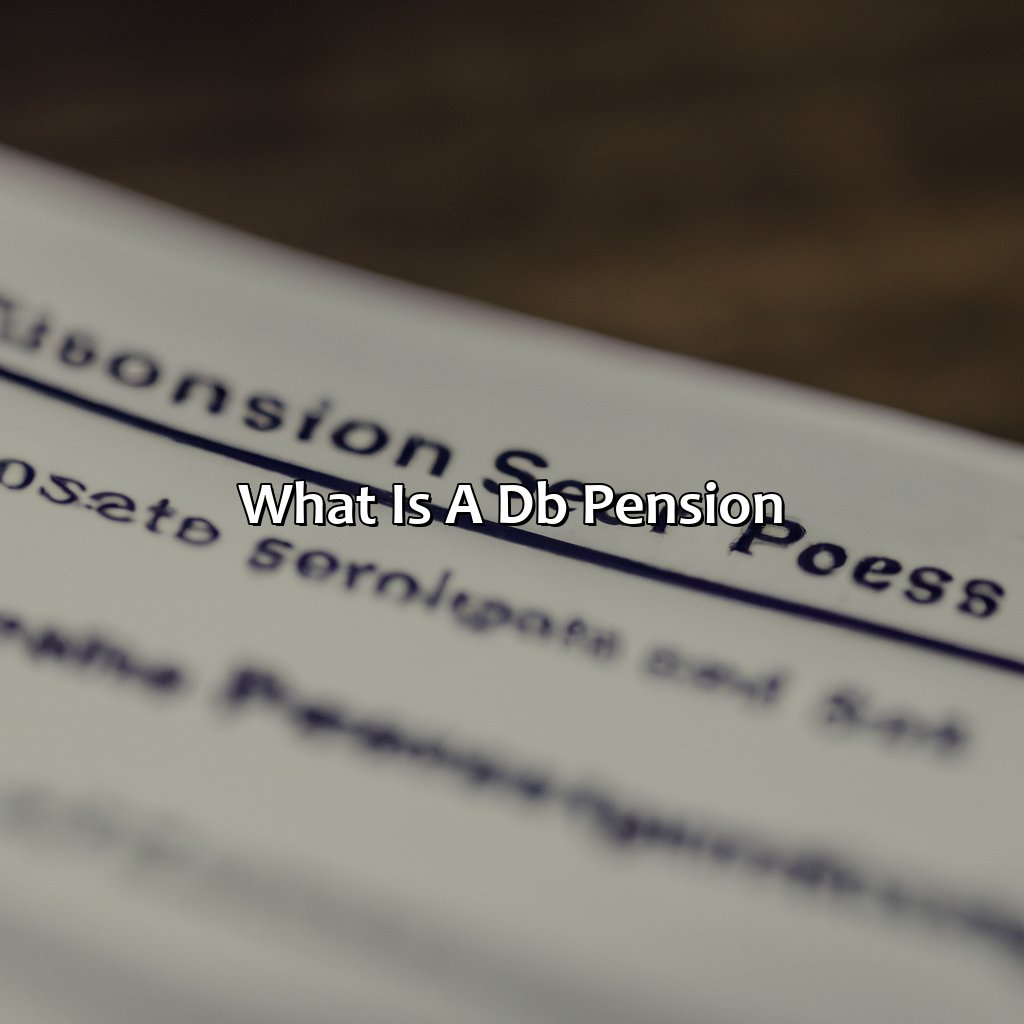What Is A Db Pension?
Key Takeaway:
- A DB Pension, or Defined Benefit Pension, is a retirement plan that promises to pay a specific benefit at retirement, based on factors such as salary and years of service. The employer is responsible for funding the plan and bears the investment risk.
- There are several types of DB Pensions, including flat benefit plans, career average plans, and cash balance plans. Each type has different formulas for calculating the benefit and varying levels of risk for the employer.
- The advantages of DB Pensions include providing a stable source of retirement income for employees, allowing for early retirement, and providing survivor benefits for spouses or dependents. DB Pensions can also be attractive for employers in attracting and retaining employees.
- The disadvantages of DB Pensions include the potential for underfunding and the risk of investment losses. Employers may also face higher costs and financial obligations with DB Pensions, which can impact their bottom line.
- The funding of DB Pensions is typically through employer contributions, with additional funding coming from employee contributions or investment returns. Employers are required to follow strict funding and reporting requirements to ensure the plan remains adequately funded.
- Examples of companies offering DB Pensions include public sector employers, such as government agencies and school districts, as well as some large corporations in industries such as finance and manufacturing.
- In conclusion, DB Pensions can provide a valuable source of retirement income for employees and be an effective tool for attracting and retaining talent for employers. However, they also come with financial obligations and risks that must be carefully considered and managed.
You deserve to know what a DB pension is and how it can benefit your retirement plan. With so much uncertainty around retirement planning, it’s important to understand the potential benefits of a DB pension and how it can help you prepare for the future.
Definition of DB Pension
A Defined Benefit (DB) Pension is a retirement plan that guarantees a specific payout amount based on factors such as length of service and salary history. The employer is responsible for funding the plan, and the payout amount is typically predetermined. This type of pension plan provides more stability and certainty for retirees. However, some employers are moving away from this type of plan due to the financial burden it can place on their organization.
In contrast to a Defined Contribution (DC) plan, where the employee contributes to the plan and the payout amount is dependent on investment returns, DB plans are solely funded by employers. The amount an employee will receive in retirement is determined by a formula, and the plan is managed by the employer. Upon retirement, the employee can typically choose to receive either a lump sum payment or receive the pension benefits in regular installments. To know more about how does a UK pension work, visit this link.
It’s important for employees to understand the details and terms of their DB pension plan, as it is a critical part of their retirement income security. According to a report by the Pension Benefit Guaranty Corporation, as of the end of 2020, there were about 22,000 private-sector DB pension plans in the United States.
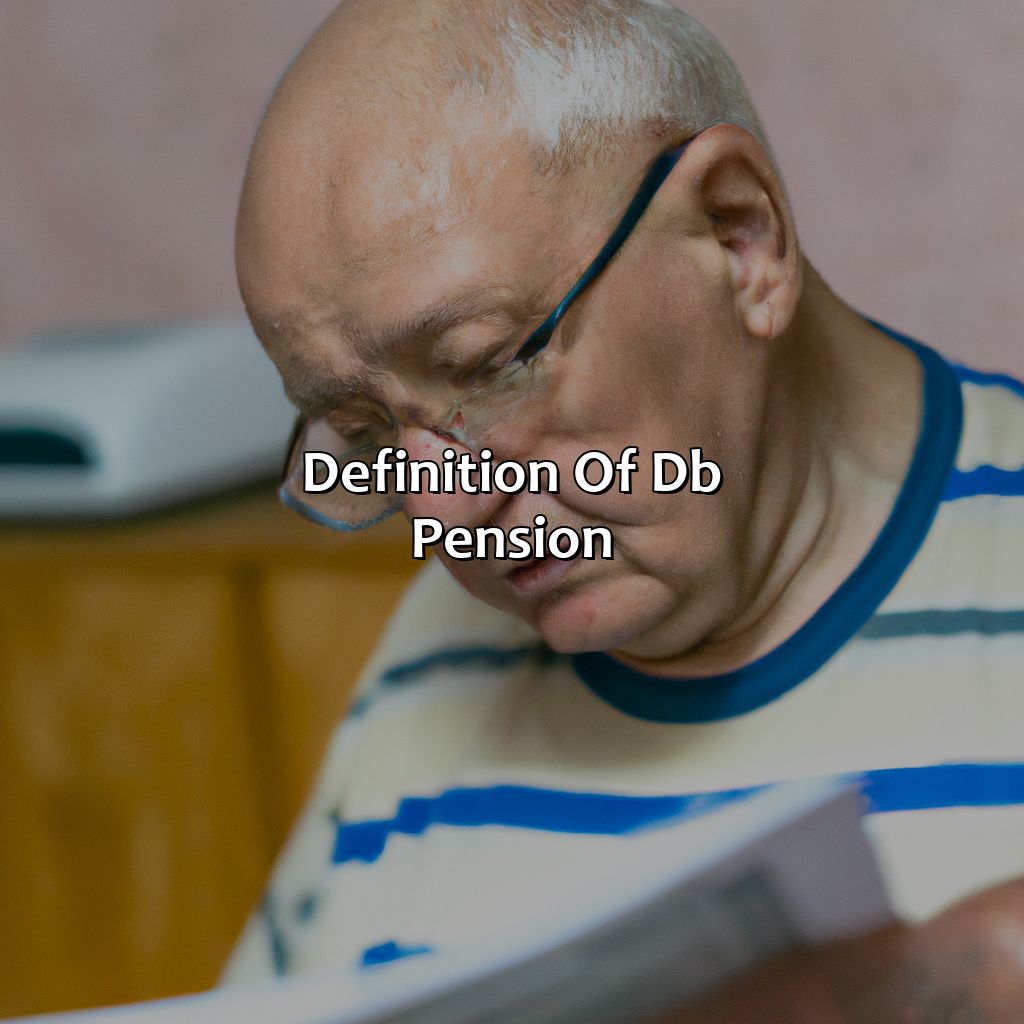
Image credits: retiregenz.com by Yuval Duncun
Types of DB Pensions
In the world of pensions, there are several categories of pension plans. One such plan is known as a Defined Benefit Pension Plan. This type of plan provides a specified, steady payment to its members at retirement. The amount of the payout is based on a formula that considers various factors, such as the member’s years of service and salary.
Types of DB Pensions:
The following table outlines the various types of Defined Contribution Pension Plans:
| Type of DC Pension Plan | Description |
|---|---|
| Final Pay Plan | The payout is calculated based on the member’s earnings at retirement. |
| Career Average Plan | The payout is calculated based on the member’s average salary over their career. |
| Cash Balance Plan | Funds are deposited into a hypothetical account which grows with interest. The payout at retirement is based on the account balance. |
| Hybrid Plan | Combines aspects of both Defined Benefit and Defined Contribution plans. Payouts are calculated based on a formula that factors in a hypothetical account balance. |
It is worth noting that while Defined Benefit Pension Plans are known for providing a consistent, reliable payout, they are often costly for employers to maintain due to the long-term financial commitments that come with the plans.
As the economic landscape has shifted in recent years, some employers have moved away from offering Defined Benefit Pension Plans in favor of Defined Contribution Plans. Employers who do offer Defined Benefit Plans may consider adjusting certain aspects of the plan to reduce costs, such as raising the retirement age, reducing benefits, or offering a hybrid plan.
To learn more about public pensions, you can refer to our website.
But have you heard of a Sipp Pension? It’s a Self-Invested Personal Pension, which allows you to choose and manage your own investments. This can give you more control over your retirement savings and potentially lead to higher returns. It’s worth considering if you’re looking for more flexibility in your pension options.
Ultimately, the type of pension plan an individual is enrolled in will depend on their specific employer and the nature of that employer’s benefits offerings.
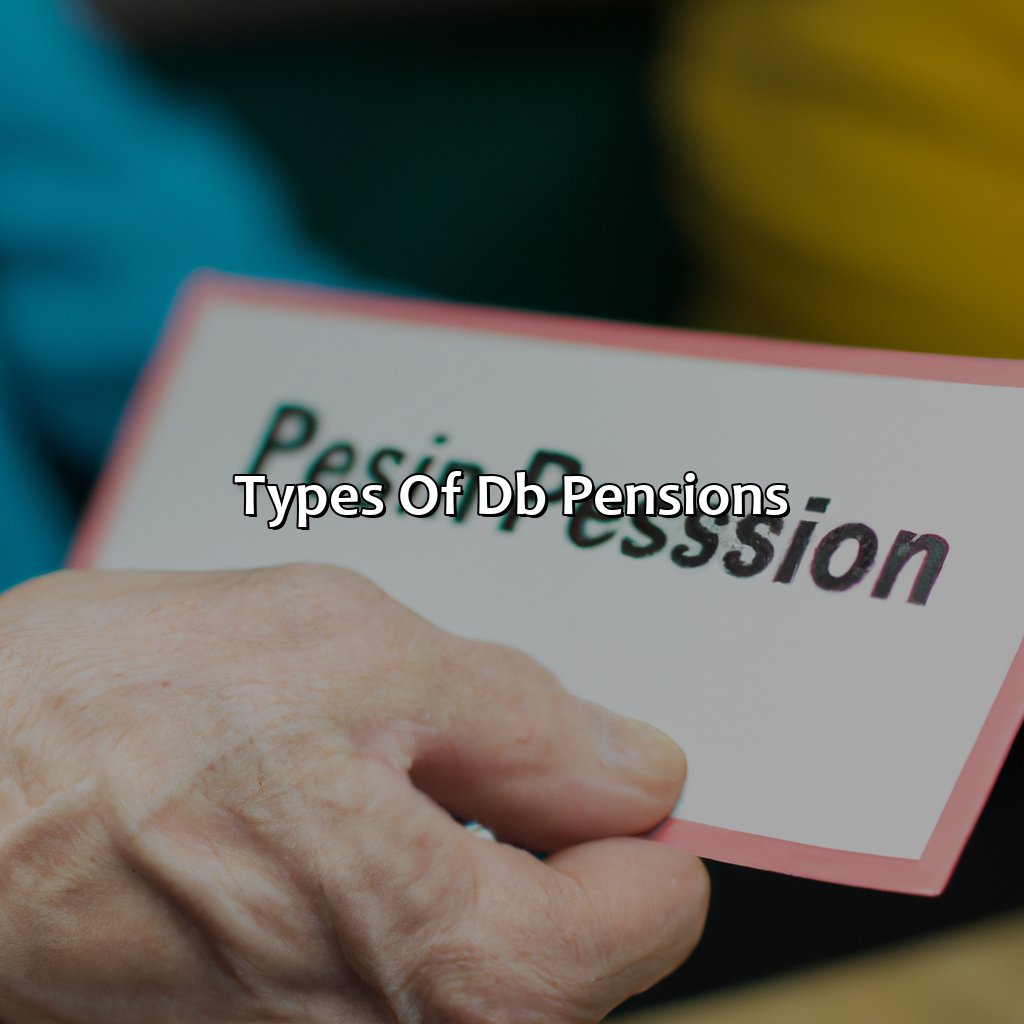
Image credits: retiregenz.com by James Woodhock
Advantages of DB Pensions
DB Pension Plans – Benefits and Advantages
Curious about pension funds? Learn more about what is pension funds and how DB Pensions provide several advantages over other types of pension plans, making them an attractive option for employees.
- Guaranteed Income: DB pensions offer a guaranteed income over an employee’s retirement period, which is calculated based on factors such as salary and years of service.
- Contributions: Contributions to DB pensions are made by both the employer and employee, ensuring that there is adequate funding for the plan.
- Investment Risk: Investment risks are borne by the employer, not the employee, giving them greater certainty and stability in their retirement income.
- Inflation Protection: DB pensions provide protection against inflation, ensuring that retirees purchasing power is not eroded over time.
- Portability: Employees can transfer their DB pensions to other employers, if required, providing them with increased flexibility.
- Death Benefits: DB pensions offer death benefits to an employee’s beneficiaries, providing financial security to loved ones.
DB pensions are designed to provide a secure and predictable income stream to employees, catering to long-term financial planning. The investment decisions are made by pension professionals, based on the employer’s financial goals and risk tolerance. If you are wondering where does pension money come from, this article can provide you with more information.
According to a study by Willis Towers Watson in 2019, more than half of the Fortune 500 companies in the US offer DB pension plans to their employees, underscoring their important role in employee benefits packages.
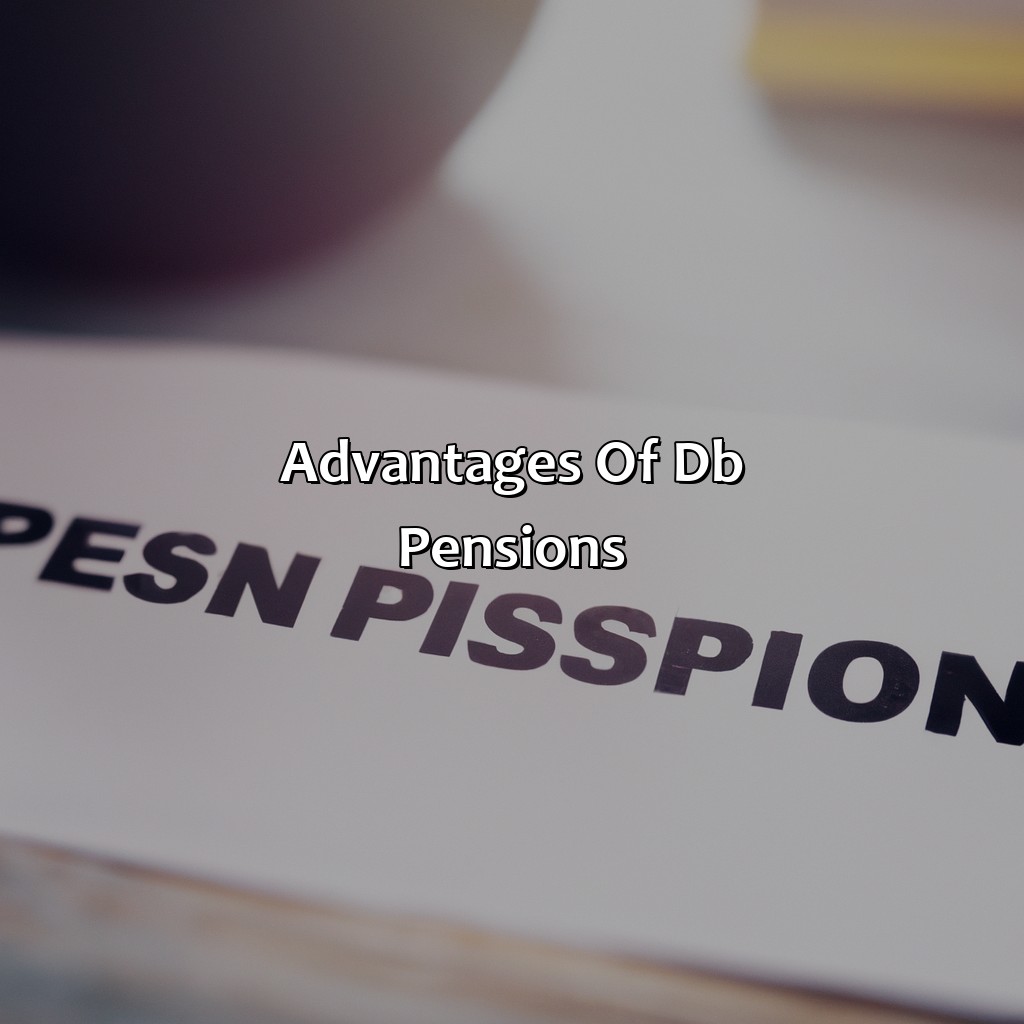
Image credits: retiregenz.com by James Duncun
Disadvantages of DB Pensions
Defined Benefit (DB) Pensions: Limitations and Drawbacks
For those unfamiliar with pensions, it is important to understand the different types available. One type of pension is called a deferred pension. DB pensions, despite their potential advantages, have certain limitations that users must be aware of.
Disadvantages of DB Pensions:
- Cost: DB pensions are expensive for employers to maintain and are contingent on a range of actuarial assumptions.
- Unpredictability: The projected amount of benefits and actual amount paid may differ due to funding gaps or market volatility.
- No flexibility: DB pensions typically provide uniform benefits, hence, lack flexibility in terms of payouts.
- Inflation risk: DB pensions do not provide protection against inflation, and retired pensioners may see their purchasing power decrease over time.
It is important to note that DB pensions are not inherently flawed. Rather, their limitations stem from the way they are designed. For instance, DB pensions may not be suitable for younger workers who value flexibility and, thus, wish to determine how much they contribute and how their funds are allocated.
A friend of mine worked for a large firm for nearly ten years and accrued a significant DB pension. However, when the company’s business model changed, his pension plan was impacted, and he was left with only a fraction of the expected benefit amount. This event clearly highlights the importance of understanding the intricacies of DB pension types and the potential drawbacks of putting all your eggs in one basket.
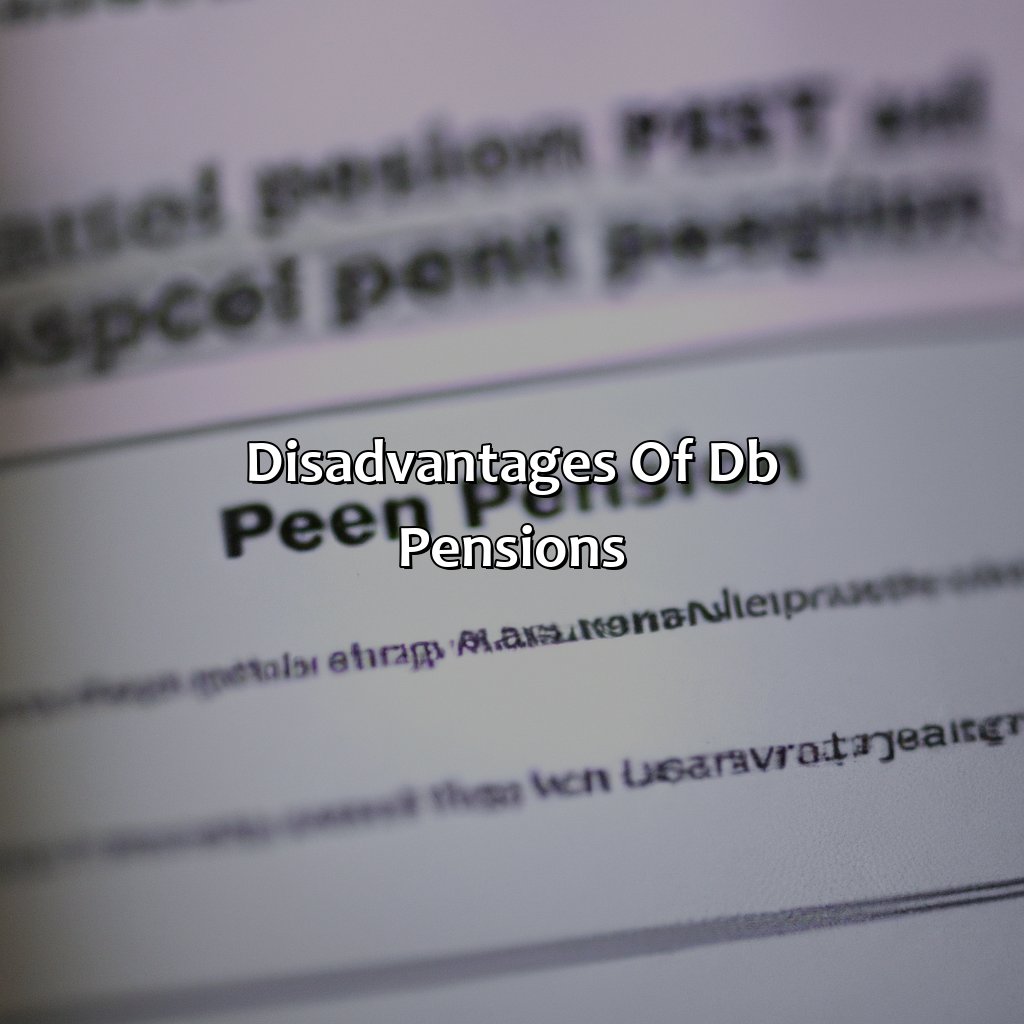
Image credits: retiregenz.com by Yuval Woodhock
Funding of DB Pensions
DB pensions, also known as defined benefit pensions, are retirement plans in which employers guarantee a specific payout upon retirement. The funding of DB pensions involves the employer contributing a set amount of money into the plan each year to ensure that there are sufficient assets to cover future pension payments.
The pension payout is based on a formula that takes into account the employee’s years of service and salary. Employers must comply with regulatory requirements to ensure that their pension plans are properly funded and remain solvent. If you are wondering how a pension is paid out, it’s important to understand that the payout is based on this formula.
Employers may face challenges in funding their DB pensions due to factors such as market volatility, low interest rates, and increasing life expectancies. In such cases, they may need to adjust their contributions or take other measures to ensure the plan remains adequately funded. If you are wondering what is a pension scheme, it’s basically a retirement plan where an employee gets a fixed amount of money after retirement.
To avoid missing out on retirement benefits, employees should stay informed about their employer’s pension plan and its funding status. They should also consider saving and investing for retirement in addition to relying on their money purchase pension plan.
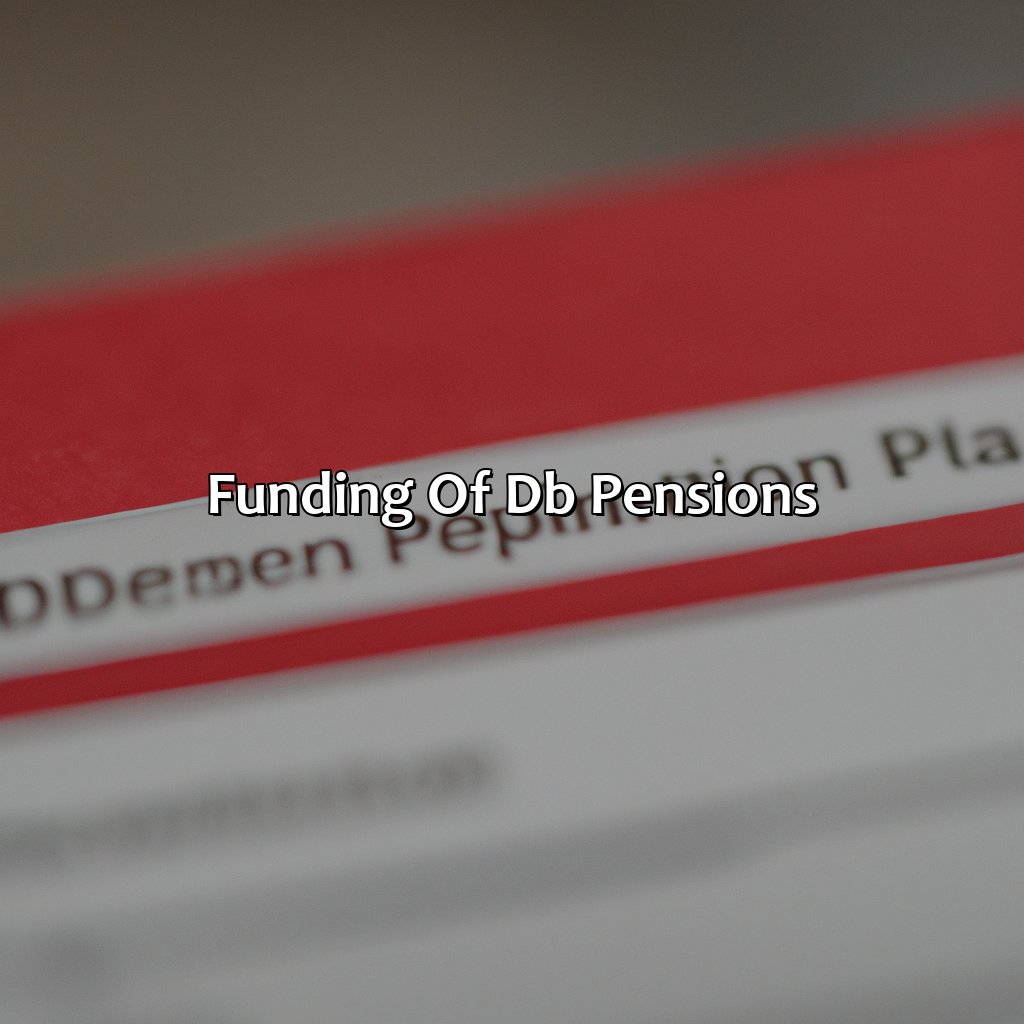
Image credits: retiregenz.com by David Washington
Examples of Companies Offering DB Pensions
In the world of pensions, Defined Benefit (DB) schemes are a popular choice for many companies looking to offer retirement benefits to their employees. Here are some companies that offer DB Pensions:
- Royal Mail Group: Provides a Defined Benefit pension scheme to its employees that enables them to receive a guaranteed income throughout their retirement.
- British Telecom: Offers a Defined Benefit scheme that provides a range of benefits, including a guaranteed level of retirement income for employees.
- BAE Systems: Provides a generous Defined Benefit scheme that includes a range of benefits such as pension payments, life assurance cover and disability benefits.
- Unilever: Offers a Defined Benefit scheme as part of its employee benefits package that guarantees a level of retirement income to its employees.
It is noteworthy that each company offers unique benefits and features, which is important for employees to keep in mind when selecting a pension plan.
To make the most of a DB Pension, employees should consider contributing as much as they can to the scheme. Additionally, employees should consider talking to a financial advisor to better understand their options with regards to retirement planning. By having a better understanding of their retirement income and benefits, employees can take steps toward financial security in retirement.
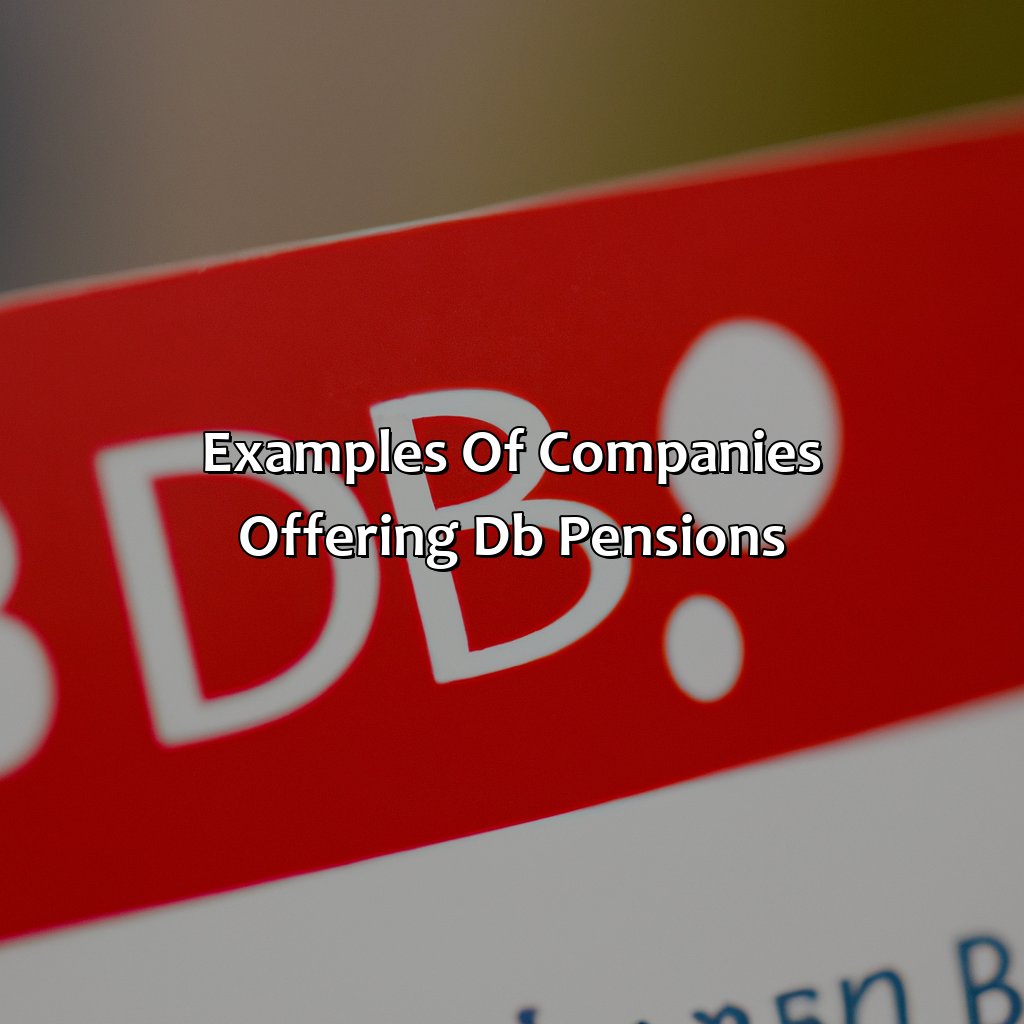
Image credits: retiregenz.com by Adam Duncun
Five Facts About What Is a DB Pension:
A DB pension, or defined benefit pension, is a retirement plan in which the employer promises to pay a specified benefit to the employee upon retirement. (Source: Investopedia)
The benefit payment is typically based on the employee’s salary and years of service. (Source: Pension Rights Center)
The employer bears the investment risk, and the plan is often funded through a combination of employer and employee contributions. (Source: Pension Benefit Guaranty Corporation)
DB pensions are becoming less common in the private sector, but are still prevalent in government and unionized industries. (Source: Forbes)
Many DB pensions are underfunded, meaning the plan does not have enough assets to pay the promised benefits. (Source: Wall Street Journal)
FAQs about What Is A Db Pension?
What is a DB pension?
A defined benefit (DB) pension plan is a retirement plan where an employer promises to pay its employees a specific benefit for life at retirement. The benefit is typically based on the employee’s salary, years of service, and a predetermined formula. The employer is responsible for investing the money required to pay these promised benefits.
How is a DB pension different from other types of pensions?
A defined benefit pension plan is different from other types of pension plans because the employer guarantees a specific benefit at retirement. Other types of pension plans, such as defined contribution plans, do not guarantee a specific benefit. The amount of money you receive upon retirement in a defined contribution plan depends on the performance of the investments in your account.
Who contributes to a DB pension plan?
Both the employer and the employee contribute to a DB pension plan. The employer is responsible for making contributions to the plan to ensure that there is enough money to pay for the benefits promised to employees. The employee may also make contributions to the plan, although this is less common.
Are DB pension plans common?
DB pension plans were more common in the past, but their popularity has declined in recent years. Today, most private employers offer defined contribution plans, such as 401(k) plans, instead of DB pension plans. However, some public sector employers still offer DB pension plans.
What happens to a DB pension plan if the employer goes bankrupt?
If the employer goes bankrupt, the Pension Benefit Guaranty Corporation (PBGC) may step in to help protect the pension benefits of employees. The PBGC is a federal agency that guarantees the payment of certain pension benefits in the event that an employer cannot fulfill its obligations.
What are the advantages of a DB pension plan?
The advantages of a DB pension plan include the security of a guaranteed benefit at retirement, the ability to plan for retirement based on a specific benefit amount, and the potential for higher retirement income than other types of retirement plans. Additionally, some DB pension plans offer cost-of-living adjustments to help protect against inflation.
 Checkout this IRS Loophole
Checkout this IRS Loophole 
